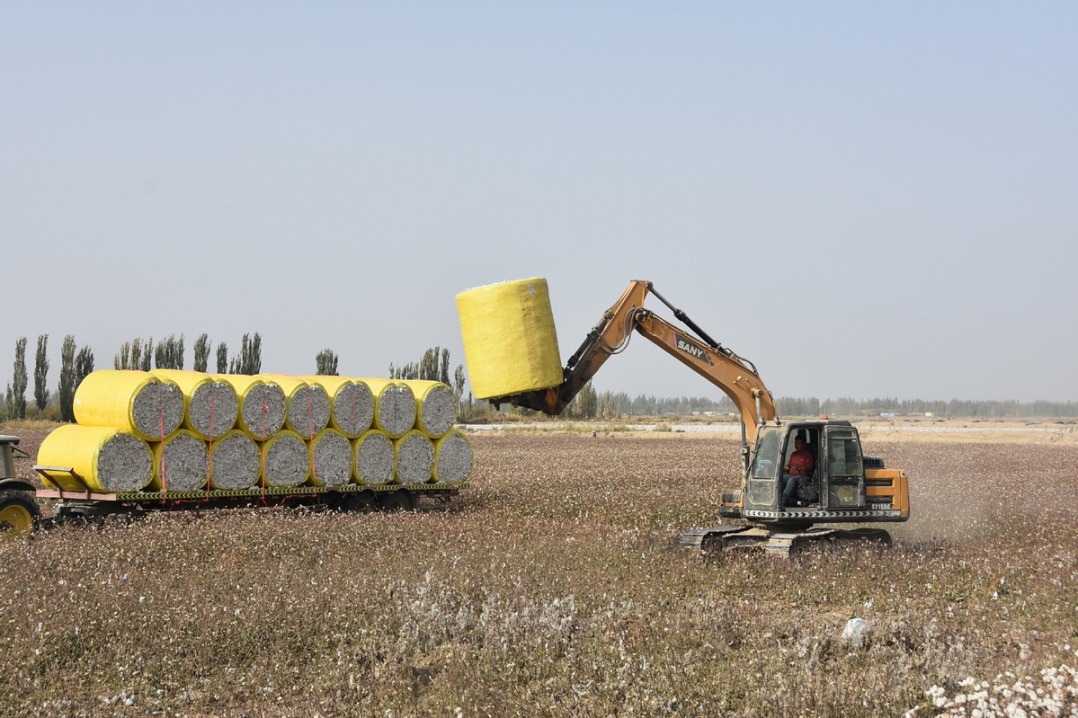Innovation to be key driver of progress
Next five-year plan expected to focus on fostering new quality productive forces


China is set to make the development of new quality productive forces one of the top priorities of its next five-year plan, as policymakers seek to upgrade the nation's industrial structure, spur innovation-driven growth, and reinforce confidence in the long-term outlook of the world's second-largest economy, said officials, experts and global executives.
The new blueprint will serve as a crucial bridge between the current phase of recovery and China's goal of basically achieving socialist modernization by 2035. Experts said it underscores the country's resolve to reinvigorate growth amid domestic structural pressures and rising global uncertainties, steering the economy toward new drivers such as advanced manufacturing, green transformation and digital innovation.
Their comments came as the market is closely watching the draft proposals for the 15th Five-Year Plan (2026-30), as the 20th Central Committee of the Communist Party of China is holding its fourth plenary session in Beijing to deliberate on the drafting of the blueprint for China's development over the next five years.
President Xi Jinping shed light on the likely key priorities in Shanghai in April as he presided over a symposium on China's economic and social development in the 15th Five-Year Plan period and delivered an important speech.
Xi, who is also general secretary of the CPC Central Committee, said higher strategic priority must be given to fostering new quality productive forces in line with local conditions in the next five years.
Highlighting the roles of technological innovation and the real economy, he called for efforts to transform and upgrade traditional industries, develop emerging industries, and make forward-thinking arrangements for industries of the future, in order to accelerate modernization of the industrial system.
Robin Xing, chief China economist at Morgan Stanley, said his team believes that China will remain committed to deepening the economic transition anchored in technology and innovation to secure the supply chain and energy self-sufficiency. "We expect a tech-and supply-driven framework."
Zhang Ning, senior China economist at UBS Investment Bank, said China is likely to continue offering support in fundamental and frontier research, and in self-sufficiency technology bottleneck areas during the next five years.
"We think fostering 'high-quality growth' will likely be the top priority over the next decade, mainly driven by innovation and total factor productivity growth," Zhang added.
A meeting of the Political Bureau of the CPC Central Committee, chaired by Xi in late September, discussed major issues related to the formulation of the 15th Five-Year Plan for national economic and social development.
The meeting stressed the need to remain committed to high-quality development, foster new quality productive forces in line with local conditions, and comprehensively deepen reform while further expanding high-level opening-up.
Citing research topics for the next five-year plan released by the National Development and Reform Commission, the country's top economic regulator, Ye Fan, an analyst at Southwest Securities, said the scope of studies under the upcoming five-year plan has expanded significantly, with newly added topics accounting for about 50 percent of the total.
"Among them, subjects related to technological innovation and industrial development increased by 80 percent and 64 percent, respectively," Ye noted. "The topics cover key areas such as global technological and industrial transformation, talent development and innovation capacity building. In terms of industrial priorities, the focus is placed on key areas including the digital economy, artificial intelligence, services and healthcare."
According to Ye, policymakers will place greater emphasis on development quality, efficiency and sustainability in the next five years. "It will drive industrial upgrading through technological innovation, deepen the integration of the digital and real economies, and promote a comprehensive green transformation of China's economy and society."
In March 2024, Zheng Shanjie, head of the NDRC, told a symposium that the planning of the 15th Five-Year Plan will fully take into account the practical requirements for developing new quality productive forces.
He said policymakers will focus on identifying key tasks and foundational projects to promote the growth of new quality productive forces as they set major goals, strategic missions, reform measures, and large-scale projects for the next stage of China's economic and social development.
Hu Yuwei, chief policy analyst at China Securities, said the next five-year blueprint will place greater emphasis on innovation-driven growth, green and low-carbon development, and digital transformation to adapt to the trends of globalization and informatization.
China's innovation capacity has risen rapidly over the past few years. According to the "Global Innovation Index 2025" report released by the World Intellectual Property Organization, China has risen to 10th place in the global innovation ranking for 2025, up one spot from last year, marking its first entry into the top 10.
However, Hu cautioned that challenges remain. "Our basic research remains relatively weak, with insufficient concentration of scientific resources and a lack of systematic advantage in original innovation."
Hu suggested that during the next five years, China should strengthen its national strategic science and technology capacity, enhance self-reliance in core technologies, and promote advanced, smart and green manufacturing.
Global executives hailed China's ongoing efforts to foster new quality productive forces, saying that multinational corporations will see rising opportunities in the next few years.
"I don't see China only as just the market. I think China has probably become an engine for some specific innovations, which we can develop elsewhere," said Estelle Brachlianoff, CEO of Veolia, a French transnational group focusing on ecological environment and resource management.
Brachlianoff said she is confident that China's upcoming 15th Five-Year Plan will keep green development high on the agenda, creating more opportunities for Veolia in areas such as decarbonization and ecological restoration.
Marc Horn, president of Merck China, said China is an important source of innovation. "We are very confident in staying the course and remaining committed to our investments (here in China)."
Contact the writers at ouyangshijia@chinadaily.com.cn
- North of country sees rapid shift in seasons
- Jingdezhen a 'rare space' for creators, French ceramic artist says
- China revitalizes 88 key rivers, lakes in ecological restoration drive
- La Nina weather pattern could bring extreme cold, droughts, says NCC
- A march of faith: 74-year-old Hong Kong man retraces the Long March on foot
- Tianjin hosts events highlighting status as international destination





































